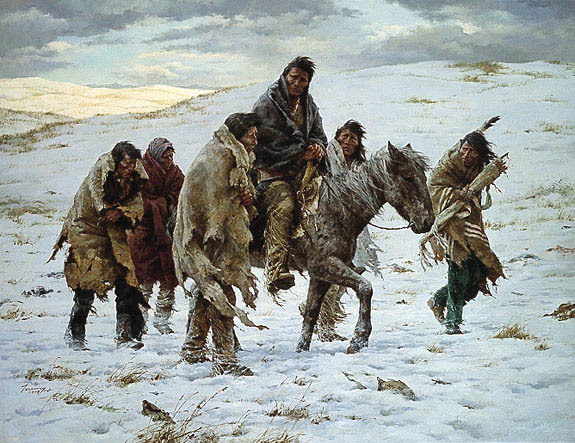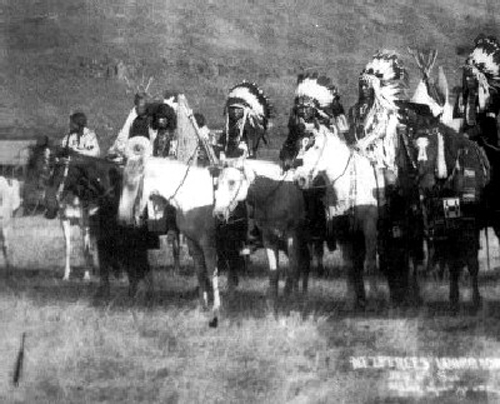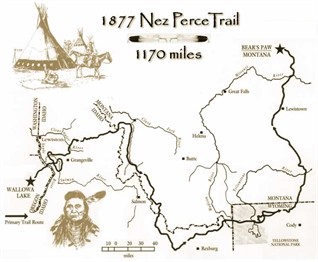
A reluctant Chief Joseph led his people to war to protect their homes and the land they had lived on for countless centuries.
Chief Joseph, who had not
signed a treaty with the United States, refused to be put on a
reservation in Oregon because it was a tiny fraction of his tribes'
aboriginal land holdings.
A treaty in 1863 had stolen six
million acres of Nez Perce land. In 1877, when Joseph and
other Nez Perce leaders were pressured to move onto a reservation,
he agreed in hopes of avoiding war, but an altercation between his
warriors and some white troops quickly flared into an all-out
war.

Nez Perce warriors
click here for more
Thus began what
General Sherman once called "The most extraordinary Indian war of
which there is any record." After fighting and winning
several big battles with the U.S. Army, after being chased for four
months and 1,500 miles, Joseph, thinking they had reached safety in
Canada, decided to let his people rest in the Bear Paw
mountains of north central Montana. It was there that General
Miles caught up with him, and where he delivered his famous
surrender speech, "From where the sun now sets, I will fight no
more forever."

After spending
almost ten years in Oklahoma as prisoners of war, the Joseph and
the Nez Perce were allowed to return to their homelands in the
Northwest in 1885.
Related Events
Related Flashpoints